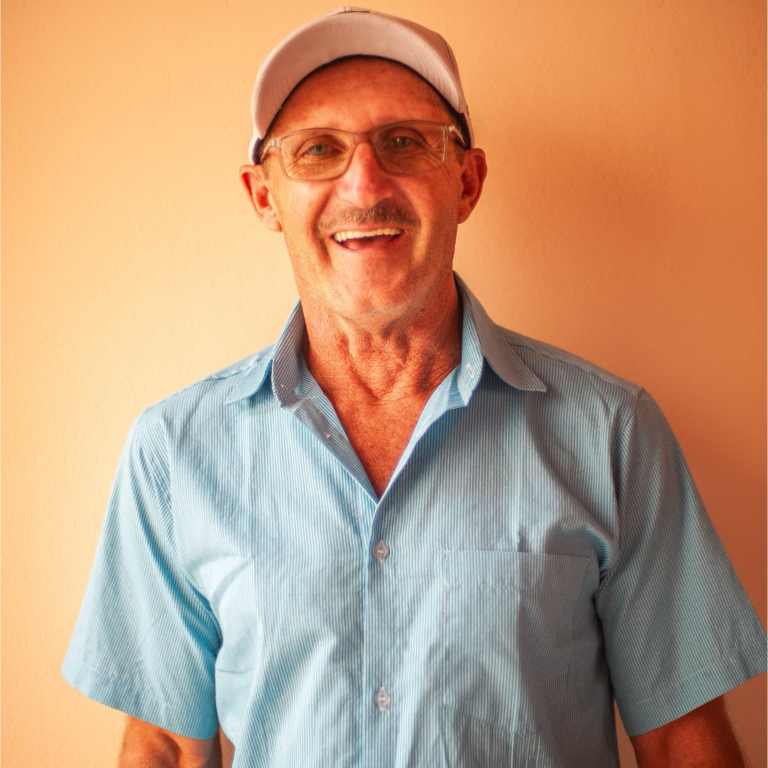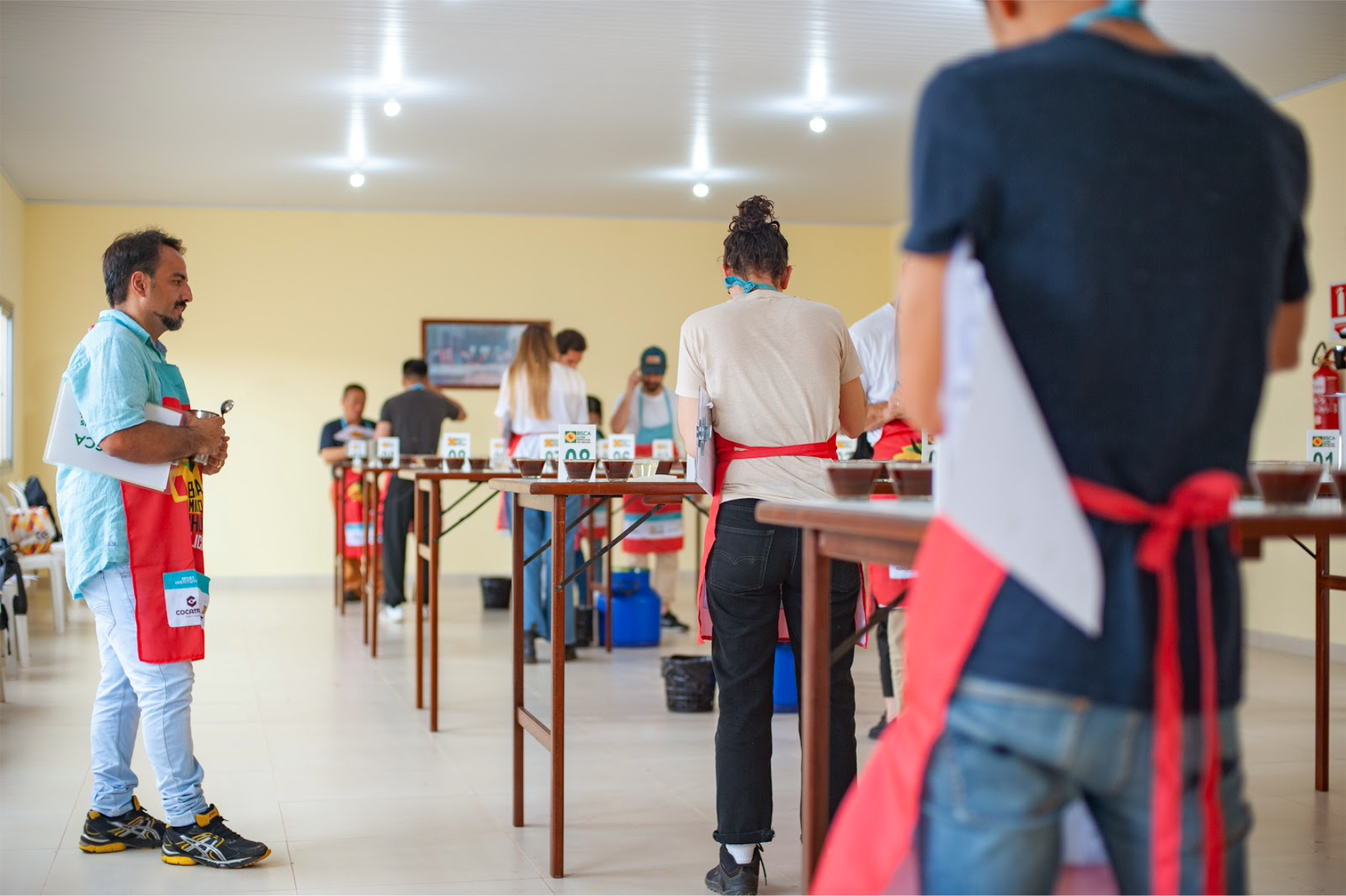
A highly limited auction lot selected during the BSCA Micro-Region Showcase, this relatively atypical Brazilian profile demonstrates the curiously unsung potential within the world’s largest coffee-producing country. This coffee is notably clean, and echos characteristics typical of coffees from East Africa: bursting acidity, sweetness to the core, and a hint of tropical fruit.
Catucaí Vermehlo (785)
Espírito Santo
1,080 masl
July - December, 2019
This washed coffee was hand-picked at peak ripeness. Floated to further remove defects and depulped on day of harvest. Wet fermented in tile tanks for 12 to 14 hours. Dried on raised-beds for 15 to 20 days within a covered structure that is open-air during the day and closed at night.
ABOUT ALTO RANCHO DANTAS
We are pleased to introduce our first coffee from Brazil. It auctioned at $30/lb, the entirety of which was awarded to the producer Joselino Menegueti. A third-generation producer from the mountains of Espírito Santo, Joselino has spent his entire life carefully monitoring the benefits and shortcomings of his particular microclimate and terroir. When he officially took charge in 2010, he implemented drastic measures to improve the quality of his crop; replanting the entire farm with a new variety, introducing soil regeneration practices, initiating on-farm quality control measures to ensure final cup quality, and continually honing his harvest and processing methods. He has established himself as one of the more respected and revered producers in his region. We are honored to open the doors to Brazil with such a promising partnership, and are excited to present this beautiful coffee to you.


ABOUT CATUCAÍ VERMEHLO (785)
Catucaí Vermelho (785) is a progeny of Icatú Vermelho and Catuaí Vermelho, and within the Bourbon lineage. It is a small uniform plant with wavy-edged leaves, and bronze-hued new growth. It is high-yielding, produces large red fruit with a large sieve rating, and is both highly leaf-rust tolerant and remarkably stable in varied weather conditions. While generally an early-harvest plant, in certain climates fruit development begins early but slows significantly—a trait that has been utilized to extend fruit maturation and improve cup quality by some of the more astute producers in compatible regions.
Pricing Details
AUCTION PRICE (LOCAL)
274.69 REAL/KG
AUCTION PRICE (USD)
$66.00/KG
The cost of getting a coffee from cherry to beverage varies enormously depending on its place of origin and the location of its consumption. The inclusion of price transparency is a starting point to inform broader conversation around the true costs of production and the sustainability of specialty coffee as a whole.